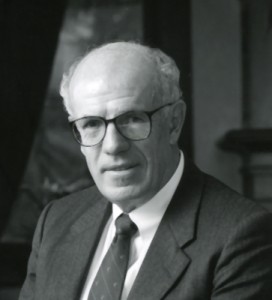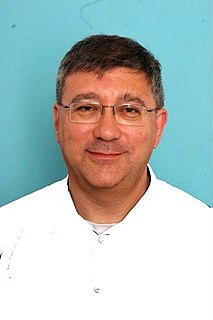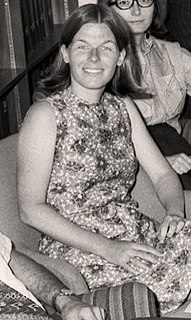Related Research Articles

Healthcare informatics or biomedical informatics is the field of science and engineering that apply informatics fields to medicine. The health domain provides an extremely wide variety of problems that can be tackled using computational techniques.
The International Medical Informatics Association (IMIA) is an independent organization that plays a role in promoting and furthering the application of information science in modern society, particularly in the fields of healthcare, bioscience and medicine. It was established in 1967 as a technical committee of the International Federation for Information Processing (IFIP). It became an independent organization in 1987 and was established under Swiss law in 1989.
The Academy of Medical Sciences is an organisation established in the UK in 1998. It is one of the four UK National Academies, the others being the British Academy, the Royal Academy of Engineering and the Royal Society.
Vimla Lodhia Patel is a Fijian-born Canadian cognitive psychologist and biomedical informaticist.

Homer Richards Warner was an American cardiologist who was an early proponent of medical informatics who pioneered many aspects of computer applications to medicine. Author of the book, Computer-Assisted Medical Decision-Making, published in 1979, he served as CIO for the University of Utah Health Sciences Center, as president of the American College of Medical Informatics, and was actively involved with the National Institutes of Health. He was first chair of the Department of Medical Informatics at the University of Utah School of Medicine, the first American medical program to formally offer a degree in medical informatics.

Yves A. Lussier is a physician-scientist conducting research in Precision medicine, Translational bioinformatics and Personal Genomics. As a co-founder of Purkinje, he pioneered the commercial use of controlled medical vocabulary organized as directed semantic networks in electronic medical records, as well as Pen computing for clinicians.
Informatics is the study of computational systems, especially those for data storage and retrieval. According to ACM Europe andInformatics Europe, informatics is synonymous with computer science and computing as a profession, in which the central notion is transformation of information. In other countries, the term "informatics" is used with a different meaning in the context of library science.

The University of Utah School of Medicine is located on the upper campus of the University of Utah in Salt Lake City, Utah. It was founded in 1905 and is currently the only MD-granting medical school in the state of Utah.

Vivian S. Lee is an American radiologist and health care executive. The president of Verily Health Platforms. Lee is the author of the book, The Long Fix: Solving America's health Care Crisis with Strategies That Work for Everyone. A senior lecturer at Harvard Medical School and Massachusetts General Hospital, Lee is also a senior fellow at the Institute for Healthcare Improvement (IHI) in Cambridge, Massachusetts. In 2019, she was named #11 in Modern Healthcare's 100 Most Influential People in Healthcare.

Christopher G. Chute is a Bloomberg Distinguished Professor at Johns Hopkins University, physician-scientist and biomedical informatician known for biomedical terminologies and health information technology (IT) standards. He chairs the World Health Organization Revision Steering Group for the revision of the International Classification of Diseases (ICD-11).

Donald Allen Bror Lindberg was the Director of the United States National Library of Medicine from 1984 until his retirement in 2015. He was known for his work in medical computing, especially the development of PubMed. He won the 1997 Morris F. Collen Award from the American College of Medical Informatics.

Yuval Shahar, M.D., Ph.D., is an Israel professor, physician, researcher and computer scientist

Jonathan S. Lewin is an American neuroradiologist specializing in medical imaging research with an emphasis on the investigation, development, and translation of new magnetic resonance imaging (MRI) techniques. He serves as executive vice president for health affairs (EVPHA) for Emory University, executive director of the Woodruff Health Sciences Center, and CEO and chairman of the board of Emory Healthcare. He is also professor of both radiology and imaging sciences and of biomedical engineering in the Emory School of Medicine and professor of health policy and management in the Rollins School of Public Health.

Lucila Ohno-Machado is a biomedical engineer and the chair of the Department of Biomedical Informatics and associate dean for informatics and technology at UC San Diego. She is an elected member of the American Society for Clinical Investigation and the National Academy of Medicine.

Betsy L. Humphreys is an American medical librarian, director of the National Library of Medicine.

Dean Forrest Sittig is an American biomedical informatician specializing in clinical informatics. He is a professor in Biomedical Informatics at the University of Texas Health Science Center at Houston and Executive Director of the Clinical Informatics Research Collaborative (CIRCLE). Sittig was elected as a fellow of the American College of Medical Informatics in 1992, the Healthcare Information and Management Systems Society in 2011, and was a founding member of the International Academy of Health Sciences Informatics in 2017.
Bernd Blobel is a scientist recognized for his contributions to the field of health informatics. He is a professor at the Faculty of Medicine of the University of Regensburg, Germany, and visiting professor at the First Faculty of Medicine of the Charles University of Prague, Czech Republic. His main areas of research include electronic medical records, security, privacy and interoperability, information systems architectures in health, telemedicine and biomedicine, engineering, translational medicine, knowledge representation, and ontologies. He has received numerous recognitions for his scientific career, among which are: Fellow of the American College of Medical Informatics (ACMI) (2004), Fellow of HL7 International (2010), Fellow of the Australasian College of Health Informatics (ACHI) (2011), Honorary Fellow of the European Federation of Medical Informatics (EFMI) (2015), Inaugural Fellow of the International Academy of Health Sciences and Informatics (IAHSI) (2017), and Honorary Fellow of the EuroMISE Mentors Association, as well as Honorary Fellow of HL7 Germany and the Society for Biomedical Engineering and Medical Informatics of the Czech Republic. He is the author of more than 200 high-impact scientific articles, including the book Analysis, Design and Implementation of Secure and Interoperable Distributed Health Information Systems.

Julia Adler-Milstein is a Professor of Medicine and Director of the Center for Clinical Informatics and Improvement Research at the University of California, San Francisco. In 2019, she was named a Member of the National Academy of Medicine.
Alissa Margaret Weaver is an American oncologist. In 2017, she was promoted to the Cornelius Vanderbilt Endowed Chair of Cell and Developmental Biology and Pathology, Microbiology and Immunology at the Vanderbilt University School of Medicine.
Carrie L. Byington is a Mexican–American clinician and infectious disease specialist. In 2016, she became the first Hispanic woman to serve as Dean of a United States medical school upon her appointment at the Texas A&M University.
References
- 1 2 3 "BMI Welcomes Wendy Chapman, Ph.D., as the new Department Chair". medicine.utah.edu. September 9, 2013. Retrieved May 28, 2021.
- 1 2 "Wendy W. Chapman, PhD, FACMI". amia.org. American Medical Informatics Association . Retrieved May 28, 2021.
- ↑ "Wendy Chapman examines her time at the University of Pittsburgh". pitt.edu. 2010. Retrieved May 28, 2021.
- ↑ Mitchell, Libby (June 10, 2014). "TWO UTAH DOCTORS SELECTED FOR ELAM FELLOWSHIP". healthcare.utah.edu. Retrieved May 28, 2021.
- ↑ Kiefer, Julie (October 16, 2017). "U OF U HEALTH BIOMEDICAL INFORMATICIST WENDY CHAPMAN EARNS SPOT IN NATIONAL ACADEMY OF MEDICINE". healthcare.utah.edu. Retrieved May 28, 2021.
- ↑ "Dr. Wendy W. Chapman Has Accepted a New Position". medicine.utah.edu. July 15, 2019. Retrieved May 28, 2021.
- ↑ "Wendy Chapman, Monica Trujillo appointed to AIDH board". pulseitmagazine.com.au. November 26, 2020. Retrieved May 28, 2021.
- ↑ "Wendy Chapman, PhD, FACMI". journals.elsevier.com. Retrieved May 28, 2021.